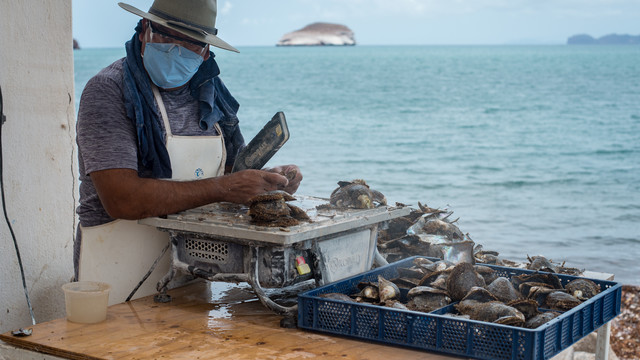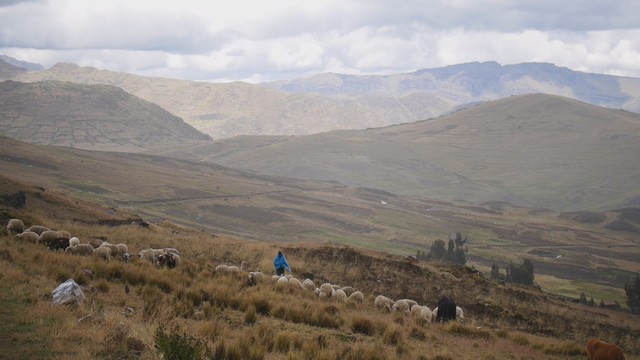Critical theme: Governing Marine Protected Areas
The governance framework of marine resources was the focus when the latest in a series of seminars at the International Institute for Environment and Development (IIED) took place on 6 October 2014.

Peter Jones, senior lecturer in the Department of Geography at University College, London, discussed Governing Marine Protected Areas (MPAs) in front of IIED staff and external guests.
Exploring the argument that the key to social-ecological resilience is through diversity, both of species in ecosystems and incentives in governance systems, Jones reported the findings of 20 MPA case studies from around the world. He employed a novel governance analysis framework to address some key questions:
- How can top-down and bottom-up approaches to MPA governance be combined?
- What does this mean, in reality, in different contexts? and
- How can we develop and implement governance approaches that are both effective in achieving conservation objectives and equitable in fairly sharing associated costs and benefits?
Jones has spent more than 20 years undertaking trans-disciplinary research on the governance of human uses of marine resources, provided advice to many national and international organisations on MPA and MSP issues, is a ministerial appointee to the Sussex Inshore Fisheries and Conservation Authority and recently published the book Governing Marine Protected Areas: resilience through diversity (2014, Routledge).
We provided coverage of this critical theme in a Storify format; and you can scroll through it below.
IIED's last critical theme saw Somsook Boonyabancha, one of the most innovative and successful professionals working on urban poverty reduction, discuss the Asian Coalition for Community Action, which she set up and which has supported more than 1,000 community-driven initiatives to improve conditions across 18 nations in Asia.
Other previous critical themes at IIED have discussed financial themes, with the latest by Carina Millstone, visiting research fellow at the Global Development and Environment Institute at Tufts University, on 20 May focusing on the private sector and sustainable business practices. Her full presentation on "What would business look like in a steady-state economy?" is available on IIED's SlideShare platform.
The previous week, IIED's Critical Theme featured Nick Robins, whose presentation "How the financial system can serve a green and inclusive economy?” addressed the relationship between financial systems and the green economy.
In March 2014, Pavan Sukhdev, the founder and chief executive officer of GIST Advisory, discussed the importance of meaningful stakeholder reporting. His visit was organised as part of a strategic review of environmental economics by the institute, with expert speakers invited to attend a series of seminars to challenge thinking on economic issues.
Sony Kapoor, the Managing Director of international think tank Re-Define, and Eric Beinhocker, the Executive Director of the Institute for New Economic Thinking's research program, have also visited IIED's Gray's Inn Road office this year. Kapoor discussed how to best connect the financial and economic policy-making community to the environmental agenda, while Beinhocker's presentation, "Escaping the Malthusian Trap", focused on emerging research that describes the economy as an evolving complex system.
Last year, Jesper Stage, Professor of Economics at Mid-Sweden University and a former IIED International Fellow, gave a presentation titled "Better indicators than GDP? Yes, but better at what?", and Kate Raworth, Senior Visiting Research Associate with the Environmental Change Unit at Oxford University and a Visiting Fellow in Economics at IIED, presented "Rewriting economics for the 21st century".


